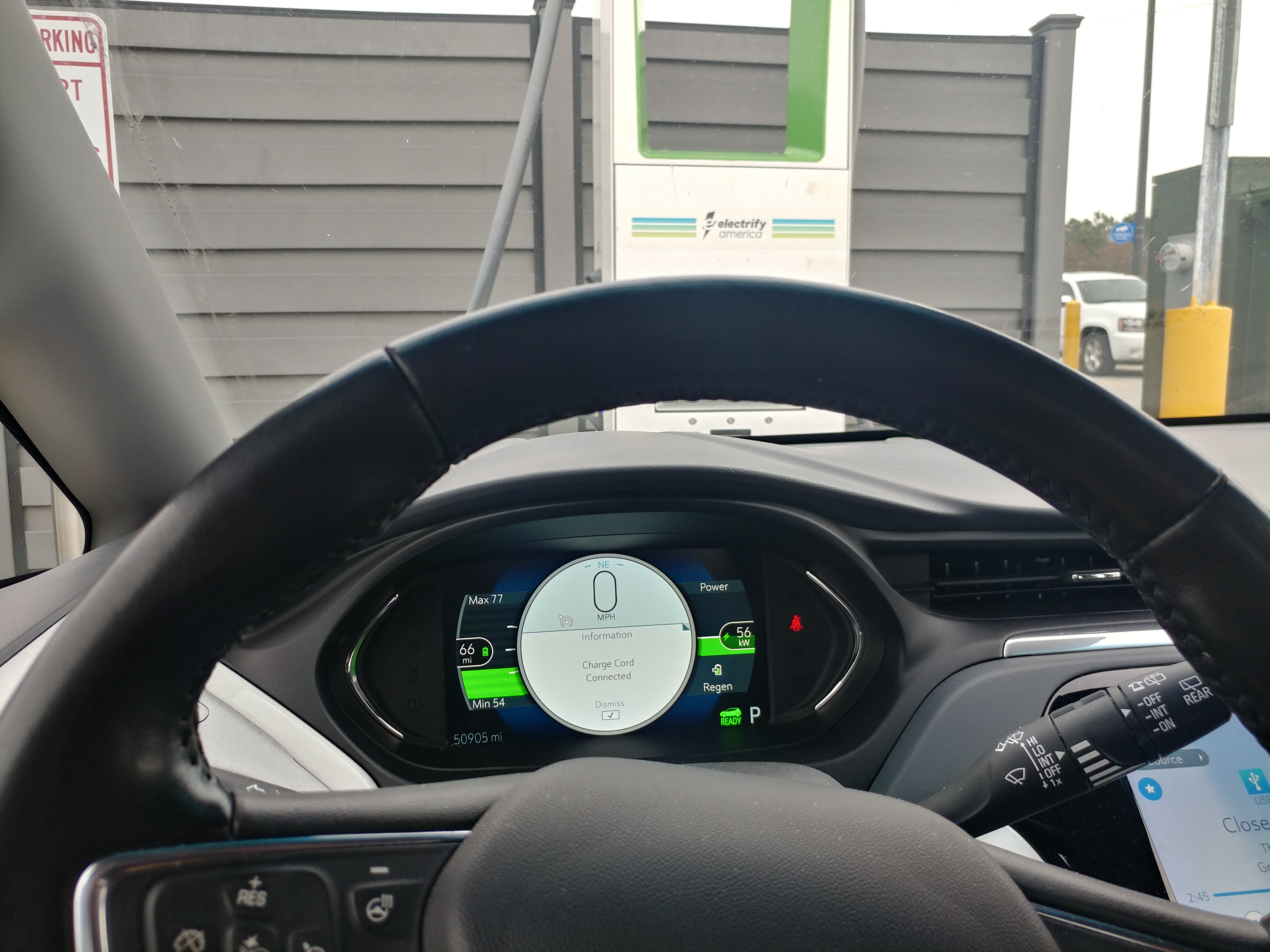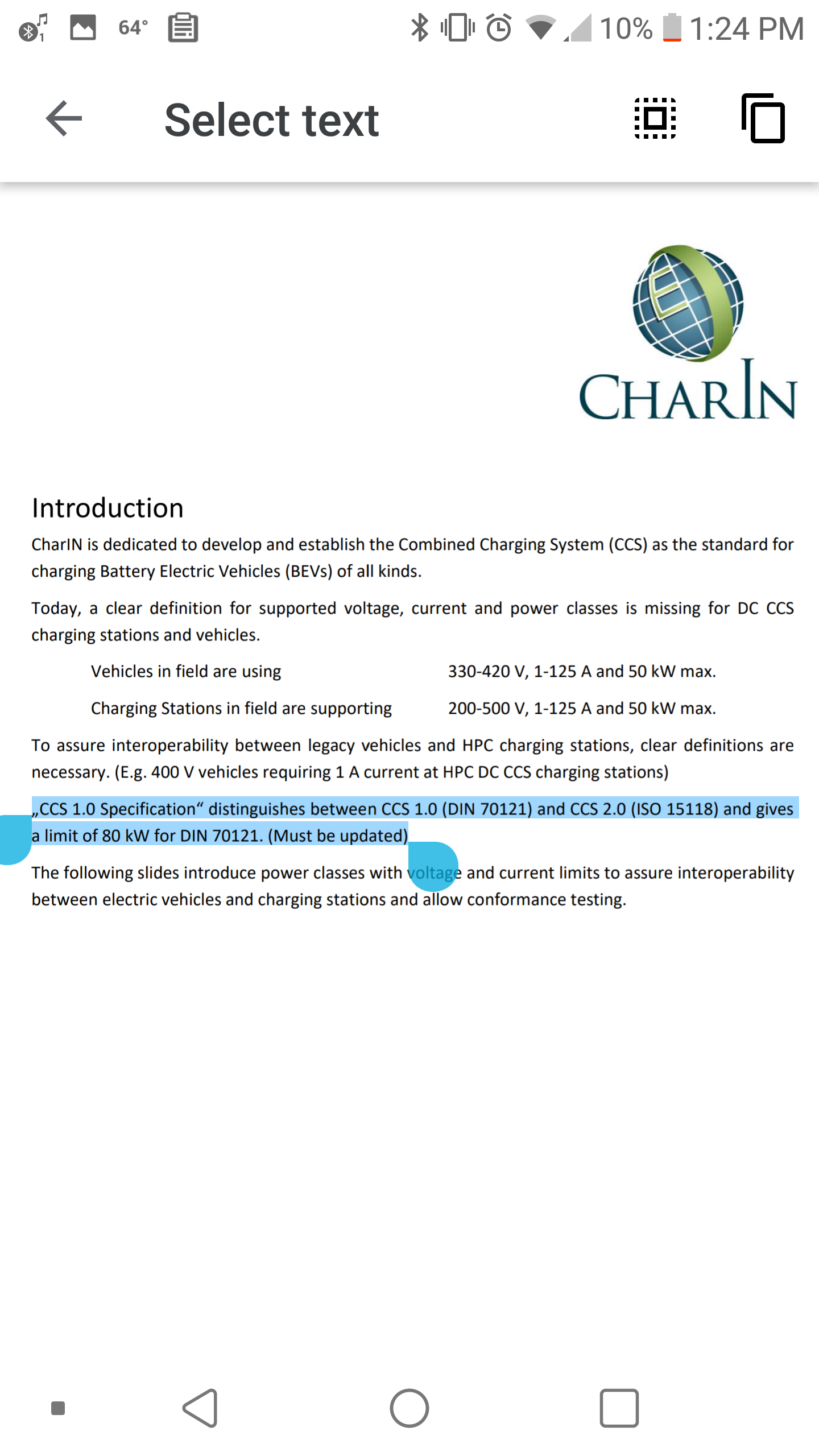andrew1joe
New member
- Joined
- Mar 7, 2020
- Messages
- 1
https://allev.info/2020/03/will-gm-give-2017-2019-bolts-the-2020-dcfc-updates/

BoltEV said:I just tried an Electrify America 350Kw charger yesterday in Mojave and was disappointed to see a 34Kw charging rate on the dashboard when EVGo gives me 45!
Have you ever had a Bolt EV charging experience greater than 44Kw?AyeJay said:I've had the exact same issue with EA chargers in the SF Bay Area.BoltEV said:I just tried an Electrify America 350Kw charger yesterday in Mojave and was disappointed to see a 34Kw charging rate on the dashboard when EVGo gives me 45!
The Bolt manual states our car will DCFC at "up to 75kW"..
AJ
BoltEV said:Have you ever had a Bolt EV charging experience greater than 44Kw?
I understand the higher amp DCFCs are more prevalent up in NorCal.
BoltEV said:Have you ever had a Bolt EV charging experience greater than 44Kw?AyeJay said:I've had the exact same issue with EA chargers in the SF Bay Area.BoltEV said:I just tried an Electrify America 350Kw charger yesterday in Mojave and was disappointed to see a 34Kw charging rate on the dashboard when EVGo gives me 45!
The Bolt manual states our car will DCFC at "up to 75kW"..
AJ
I understand the higher amp DCFCs are more prevalent up in NorCal.
BoltEV said:I teturned to Mojave one week later and the 350 Kwh EA’s were not working so I used a 150Kwh EA
With about 40 miles on the GOM it started charging at 50 Kwh!
BoltEV said:I just tried an Electrify America 350Kw charger yesterday in Mojave and was disappointed to see a 34Kw charging rate on the dashboard when EVGo gives me 45!
Maybe I need this update for this problem as well.
AyeJay said:The Bolt manual states our car will DCFC at "up to 75kW"..
AJ

AyeJay said:The confusing part is that the manual mentions: "When using a DC charging station with at least 80 kW of available power" while they're limit is apparently at 56kW?

I thought it only improved cold weather charging? If so, you'd have to go back in winter.BoltEV said:I went back to the EA charger in Mojave and this time the larger capacity station was working: I was hitting 50-53 Kwh at the beginning. I will get the software update next dealer service and go back and see if it improves the throughput.
Is that information you cite from the release bulletin? I am unable to read it.theothertom said:I thought it only improved cold weather charging? If so, you'd have to go back in winter.BoltEV said:I went back to the EA charger in Mojave and this time the larger capacity station was working: I was hitting 50-53 Kwh at the beginning. I will get the software update next dealer service and go back and see if it improves the throughput.
Yes, it's on the service bulletin. In fact, the dealer is not supposed to do the update unless the customer complains about slow charging during cold weather.BoltEV said:Is that information you cite from the release bulletin? I am unable to read it.
So, living in Southern California, I should not bother with the update?
My radio/infotainment unit went completely dark today, so I drove over to the dealer to have them check it out.theothertom said:Yes, it's on the service bulletin. In fact, the dealer is not supposed to do the update unless the customer complains about slow charging during cold weather.BoltEV said:Is that information you cite from the release bulletin? I am unable to read it.
So, living in Southern California, I should not bother with the update?
Enter your email address to join: